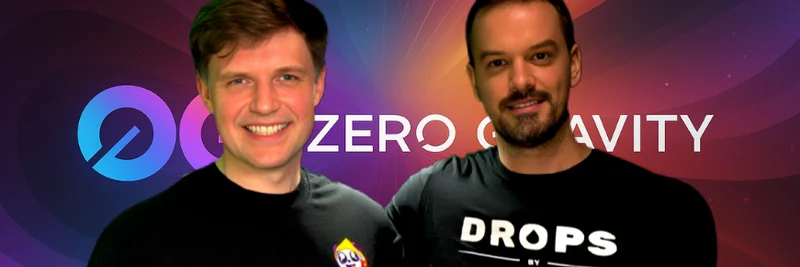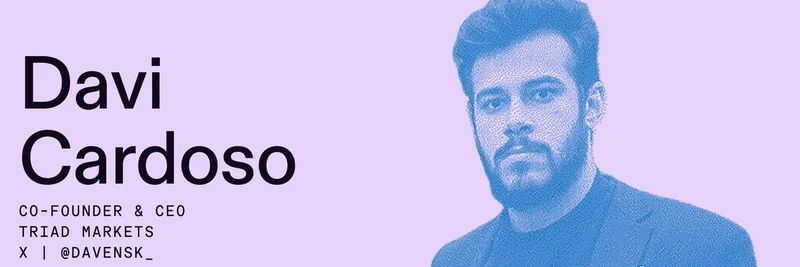In the fast-paced world of crypto and blockchain, stories of triumph over adversity are what keep the community buzzing. Recently, a tweet from Kevin of the "When Shift Happens" podcast caught our eye, diving deep into the remarkable journey of Michael, CEO of Zero Gravity Labs. It's a tale that blends personal growth, brutal business setbacks, and cutting-edge decentralized AI – perfect fodder for anyone in the meme token space looking to level up their understanding of Web3 tech.
The tweet summarizes a podcast episode where Michael opens up about his path from high-stakes finance to building a $350 million AI company. Starting at Bridgewater, a top hedge fund, he had it all on paper: prestige, pay, and challenging work. But internally? Not so much. He was chasing validation that left him feeling empty, rooted in childhood beliefs about needing to be perfect to earn love.
This realization sparked a quest for meaning. Michael explored everything from landmark education to nonviolent communication and breathing practices, eventually landing on transcendental meditation. For over 15 years, he's dedicated up to three hours a day to this practice. Transcendental meditation, or TM for short, involves sitting quietly and repeating a mantra to reach a state of "restful alertness" – think of it as hitting the reset button on your mind, tapping into a deeper consciousness beyond everyday thoughts.
This inner work became his secret weapon in leadership. Rather than retreating to a monastery, Michael chose the "householder life" – building businesses and families while staying grounded. His first venture? A wellness company promoting healthier corporate habits, which scaled to $100 million in recurring revenue and was eyeing an IPO.
Then, COVID struck in 2020. Overnight, the company lost 95% of its revenue. Imagine piloting a plane in pitch black with 650 passengers (his employees) and having to make heartbreaking cuts to survive. From 650 staff down to 35, funding dried up, and survival odds were slim – just 2%. But Michael's meditation practice helped him stay clear-headed. He focused on what he could control: fundraising, restructuring, and maintaining a positive culture. Even laid-off employees praised it as the best they'd experienced, vowing to return if possible.
Post-crisis, Michael pivoted to decentralized AI with Zero Gravity Labs, co-founded with a Stanford classmate. The name "Zero Gravity" symbolizes invisible infrastructure – tech that works seamlessly in the background. Their mission? Making AI safe through blockchain. Today's AI models are often black boxes: opaque data sources, hidden biases, and potential risks like manipulation or power-seeking behaviors (hello, sci-fi dystopias).
Zero Gravity counters this with decentralization. By using blockchain for transparency, verifiable contributions, and aligned incentives, they ensure AI benefits everyone. Think communities training specialized models – like doctors creating a cancer diagnosis tool – and getting tokenized rewards for usage. It's Web3 at its best, turning AI into a public good rather than a corporate monopoly.
What sets humans apart in this AI era? Michael argues it's our access to consciousness via practices like meditation. AI learns from our data, but we can tap into intuition and creativity on a deeper level. With $350 million raised and over 300 projects building on their chain, including training massive 100-billion parameter models, Zero Gravity is pushing boundaries.
For blockchain practitioners and meme token enthusiasts, this story highlights how personal resilience fuels tech innovation. In a space rife with volatility, Michael's takeaways ring true: Ensure AI becomes a safe public good, and prepare for its societal impact. If you're into decentralized tech, check out the full podcast on YouTube or your favorite platform – it might just shift your perspective.
Replies to the tweet add flavor too. One user jokes about whether it's meditation or GPU time powering Zero Gravity, nodding to the compute-heavy world of AI. Another recommends thinkers like Federico Faggin on consciousness, tying into broader philosophical debates in tech. And a third praises how inner clarity drives innovative leadership in decentralized AI.
Stories like Michael's remind us why we're in this space: not just for the memes and gains, but for building a future where tech empowers humanity. Stay tuned to Meme Insider for more insights on meme tokens and blockchain breakthroughs.



